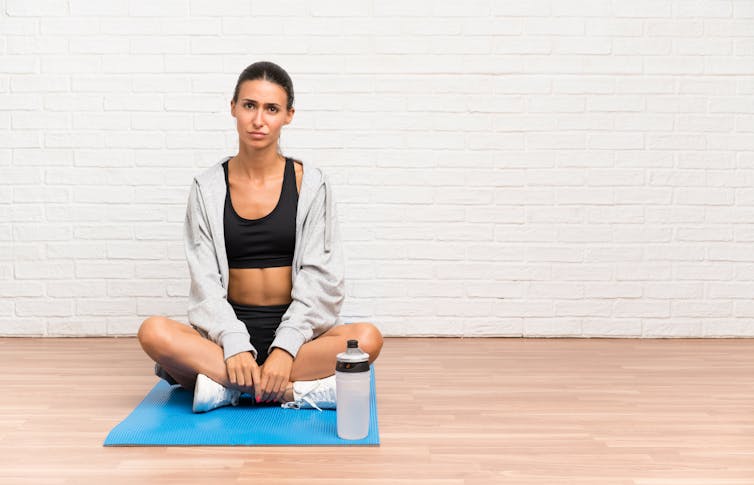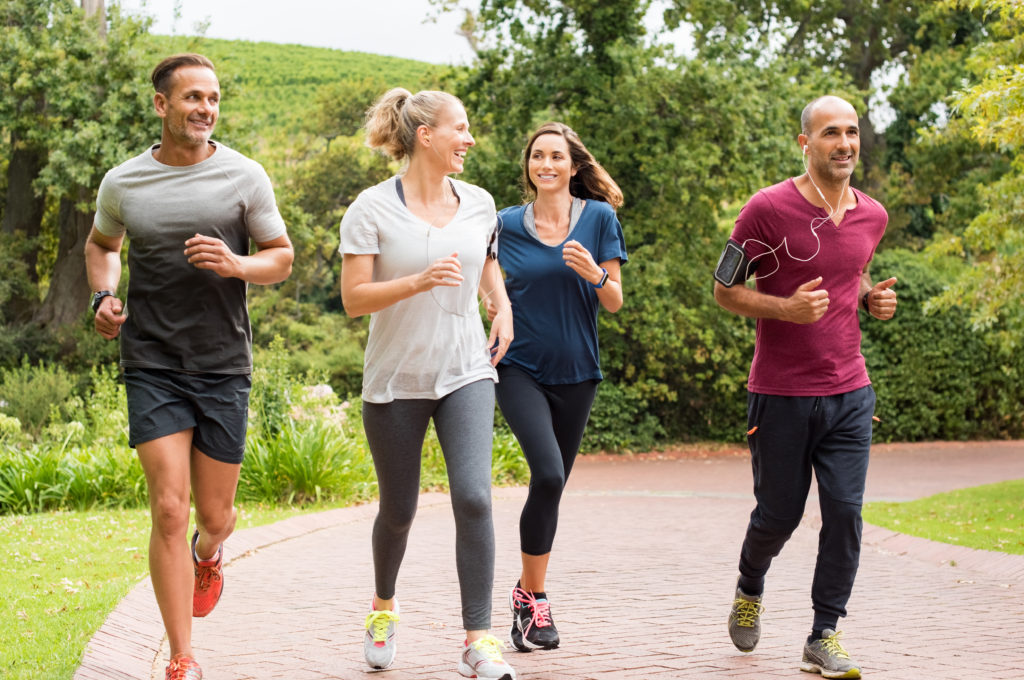Exercising in groups had better mental health may be because of the social support network they developed during group physical activities.
Exercise is not only good for your physical health, it’s good for your mental health, too. Indeed, many people even take up exercise as a way of boosting their mental well-being. But is all exercise equally beneficial – and does it matter whether you do it alone or in a group?
One notable study examined how the setting people exercised in related to mental health. The study looked at students aged between 16 and 24 years old, comparing those who took part in team sports, informal fitness groups (such as yoga classes or running groups), and those who exercised alone at least once a week. They followed up six months later to measure their mental health.
The study found that the students who did group physical activity (either in team sports or informal fitness groups) had better mental health than those who exercised alone. Students exercising in groups were also more physically active, doing nearly twice as much activity as those who exercised alone. They also reported feeling more connected to people around them.
The researchers suggest the reason students exercising in groups had better mental health may be because of the social support network they developed during group physical activities.
My own research also explored how informal football programmes helped with mental health recovery. My colleagues and I conducted two studies, one looking at community football initiatives and the other at football programmes within NHS mental health services. We interviewed people who played football at the sessions, where players, coaches and healthcare staff all took part in the activities together.
We found that participants valued group activities, as they were able to connect with people who shared similar interests and experiences. Participants also said that being able to choose to play a sport they enjoyed contributed to mental health. These programmes can support mental health recovery, allowing participants to live a hopeful and satisfying life despite any limitations caused by mental illness.
However, our research suggests that physical activity alone may not be as important as the reason why a person exercises.
The reasons we exercise
The motivations behind why a person exercises also affect mental health outcomes. The relationship between motivation and mental health can be explained by self-determination theory, which proposes that our personal experiences, alongside cultural and social factors, influence why we choose to participate in certain types of physical activity.
We’re more likely to experience mental health benefits from exercise if the environment makes us feel that we have more choice and control, we feel more capable or likely to succeed, and when we have stronger connections to others. If these aspects are perceived in an environment, we tend to take part in activities because they are enjoyable or personally important to us. This is known as “autonomous motivation”. Studies show that when people do activities for these reasons, they feel happier and have more energy.
On the other hand, feeling that we have less choice or control, or that we’re not good at what we’re doing, can have a negative effect on well-being. When we feel this way, we tend to do activities to avoid feeling guilty or being punished – or to receive praise or attention from others. This is known as “controlled motivation”.

While these reasons can be powerful ways to get us started with exercise, we’re much less likely to continue being active over the long term because we’re not doing things for our own enjoyment. Crucially, this type of motivation has been shown to have a negative impact on mental health.
For example, if I choose to jog on my own because it’s important to me, this is likely to be better for my mental health than if I played a team sport where the only reason I participate is because I worry about letting my teammates or coach down. This would be because I’m not choosing to take part in the sport for my own reasons, but for the sake of other people.
Research looking at the reasons people participate in team sports and their mental health in the UK and Ireland shows how important the right type of motivation is in relation to mental health.
Team members who were able to make choices about their training, felt connected to those around them and that they were performing well in their sport experienced better mental health. But if these aspects were missing, athletes’ mental health was poorer, showing how important creating the right environment is, regardless of the activity.
Finding ways to give individuals more choice and helping them to develop relationships with others might be important for coaches, exercise instructors and even gym buddies, so that people can better improve their mental health through the exercise they’re doing. The activity itself might not predict the mental health benefits – but the way people feel while doing it does.
So is it better to exercise alone, or in a group? In practice, there is some evidence that group-based activities might be more beneficial for mental health. But the reason a person is exercising, and the environment they’re exercising in, are just as important. Put simply, choosing an activity you love – whether it’s because you feel good at it, or it allows you to be part of a community – will bring the best mental health boost.
Laura Healy, Senior Lecturer in Sport Coaching, Nottingham Trent University
This article is republished from The Conversation under a Creative Commons license. Read the original article.

